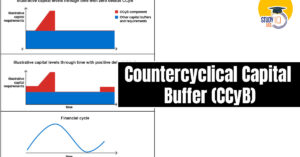Table of Contents
The World Bank’s latest report on climate and development emphasizes the critical interconnection between food insecurity and energy poverty. The report asserts that addressing these intertwined crises is essential for achieving global stability.
Interconnected Crises: Food and Energy
- Strain on Systems:
- Food production faces challenges from climate change, population growth, and inequality.
- Energy systems struggle with geopolitical tensions, outdated infrastructure, and a slow transition from fossil fuels.
- Agriculture’s Dual Role:
- Agriculture is both a major energy consumer and a significant emitter of greenhouse gases, contributing over 20% of emissions.
- Nearly 70% of global freshwater resources are consumed by agriculture.
- Dependency on fossil fuels for mechanization, irrigation, fertilizer production, and transportation creates a vicious cycle of degradation.
- Food vs. Energy Needs: Agriculture is expected to support biofuel production, creating competition for land and water resources.
- In a world where 12% face hunger, prioritizing energy over food raises ethical concerns.
- Financial Requirements:
- Ensuring basic caloric needs for vulnerable populations requires $90 billion annually until 2030.
- Tackling malnutrition among women and children needs an additional $11 billion per year.
- Transforming food systems could cost $300–$400 billion annually (about 5% of global GDP).
- For low-income nations, food insecurity costs can surpass 95% of GDP.
- Renewable Energy Challenges:
- High-income countries accounted for 83% of new renewable capacity in 2022.
- Low-income nations remain reliant on carbon-intensive systems.
- Innovations like solar-powered irrigation and biomass energy offer promise but are hindered by high costs and infrastructure deficits.
Dependency on Carbon-Intensive Energy
- Vulnerability of Food Systems:
- Fossil fuel reliance exposes agriculture to energy price shocks.
- Rising temperatures and erratic weather patterns disrupt output, endangering the livelihoods of 5 billion people.
- Between 2020 and 2023, 8% of the global population faced severe food insecurity, projected to increase to 956 million by 2028.
- Energy Investments:
- In 2022, renewable energy investments reached $500 billion, but fossil fuel consumption persists due to economic and geopolitical pressures.
- Countries like the United States, Brazil, and Guyana continue expanding oil and gas production.
- Global Inequities:
- Low-income countries suffer disproportionately from energy supply disruptions and infrastructure damage due to extreme weather.
- In sub-Saharan Africa, fertilizer use per hectare remains low despite spending $1.9 billion on fertilizer imports in 2021 (a doubling since 2016).
- Impact of Natural Gas Prices:
- 80% of natural gas is used for ammonia synthesis (fertilizer), and 20% powers the process.
- Price volatility affects global food costs.
- China’s 2021 ban on phosphate fertilizer exports caused delays for countries like India, which imports 60% of its DAP fertilizers.
Consequences of Inaction
- Economic and Social Costs: Food insecurity could cost the global economy trillions in lost productivity and poor health outcomes.
- Climate-induced energy disruptions may lead to regional instability, social unrest, and mass migration.
- Africa’s Resource Paradox: Despite Africa’s mineral wealth essential for renewables, local economies often don’t benefit, perpetuating poverty.
The Need for Inclusive Solutions
- Urgent Action:
- Despite record investments in renewables, fossil fuel use continues.
- Delays increase human, environmental, and economic costs.
- Clean energy must address structural barriers to ensure vulnerable communities benefit.
- Reimagining Agriculture:
- Agriculture must be viewed as a driver of sustenance and sustainable development.
- Failure to act risks worsening hunger and derailing global climate goals.


 5 Years of SVAMITVA Scheme and Its Benef...
5 Years of SVAMITVA Scheme and Its Benef...
 Places in News for UPSC 2025 for Prelims...
Places in News for UPSC 2025 for Prelims...
 Countercyclical Capital Buffer (CCyB): P...
Countercyclical Capital Buffer (CCyB): P...





















